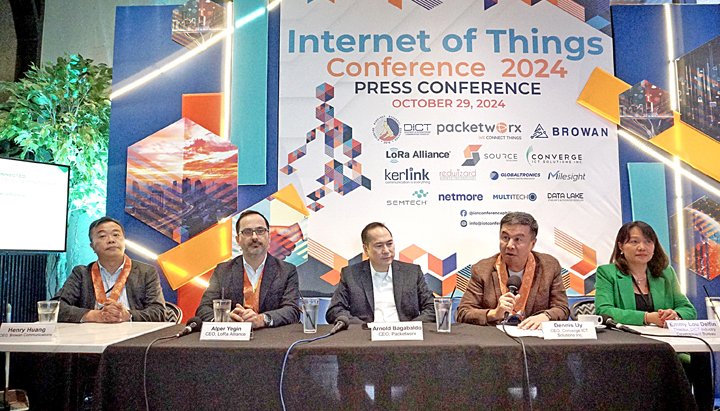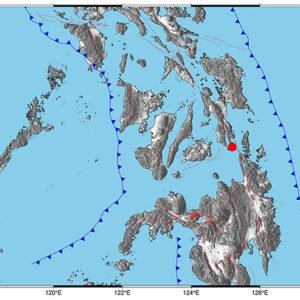
THE Internet of Things (IoT) industry in the Philippines is poised for exponential growth, with both the Department of Information and Communications Technology (DICT) and private sector players such as Packetworx and Converge ICT Solutions championing IoT adoption across industries.
At the press conference on the sidelines of the Internet of Things (IoT) Conference 2024, DICT Industry Development Bureau Director Emmy Lou Delfin emphasized that IoT is far more than just a technological advancement—it is the “connective tissue” of the digital age.
With the IoT market expected to hit P160.4 billion in 2024 and grow at a 20-percent annual rate, reaching P410 billion by 2029, DICT’s initiatives aim to lay the foundation for a robust IoT ecosystem, particularly through infrastructure and smart city development.
“loT is not merely a technology; it is the connective tissue that binds our digital society, linking data, infrastructure, and people in ways that create opportunities, efficiency, and progress across all sectors,” Delfin said.
She said the DICT’s initiatives focus on expanding the nation’s digital backbone, including its National Broadband Plan and the Free Wi-Fi for All project, which provide the essential connectivity upon which IoT applications rely.
These efforts target both urban and rural communities, supporting IoT’s transformative applications in sectors such as healthcare, agriculture, and logistics.
The Digital Cities Program, which promotes smart city development outside Metro Manila, also plays a key role, according to Delfin. By preparing 31 regional locations as IT-BPM hubs, she said the DICT envisions a nationwide framework for innovation that will drive IoT integration and bolster urban sustainability.
She added that the DICT’s Stimulating the Growth of Emerging Technologies in the Philippines (SET PH) program further cements the agency’s commitment to the IoT ecosystem.
“With IoT as one of the sectors, we aim to drive innovation, job creation, and growth, particularly in rural areas, where the impact of digital inclusion can be life-changing,” Delfin said.
The IoT National Strategy for Policy and Industry Roadmap and Ecosystem Development (INSPIRED) initiative serves as the DICT’s blueprint to accelerate IoT adoption.
Inspired prioritizes infrastructure development, talent upskilling, and private sector collaboration, particularly with local IoT startups. Through programs like the Digital Startup Development and Acceleration Program (DSDAP), the DICT provides resources and networking opportunities to IoT-focused startups, nurturing Filipino innovation from the ground up.
Private sector support
IoT company Packetworx CEO Arnold Bagabaldo stressed IoT’s potential to make the Philippines more globally competitive.
“We believe that IoT has the potential to change our country for the better. It enables us to be more efficient and effective and makes us globally competitive,” he said.
Converge ICT Solutions CEO Dennis Uy noted that the company is building its network for the future, with IoT in mind.
The company’s network expansion initiatives include over 700,000 kilometers of fiber-optic connections and over 6,000 sites in underserved regions, including remote schools.
Converge is also focusing on data centers, with a 10-megawatt facility in Pampanga and a 3-megawatt center in Cebu planned for 2025, to support IoT data processing needs.
Moreover, he said Converge is developing a five-layer technology stack that encompasses broadband, cloud TV, smart home solutions, and IoT sensors for household use.
Uy noted that Converge’s partnerships with local companies like Packetworx as crucial to network management and IoT deployment. He said by utilizing IoT sensors and advanced command centers, these partnerships enable real-time monitoring, enhancing service reliability and expanding IoT’s reach across sectors.
“By nurturing innovation and promoting adoption, we envision a truly lo-connected Philippines that serves as a beacon of progress in Asia,” Delfin said.
Image credits: Bernard Testa







